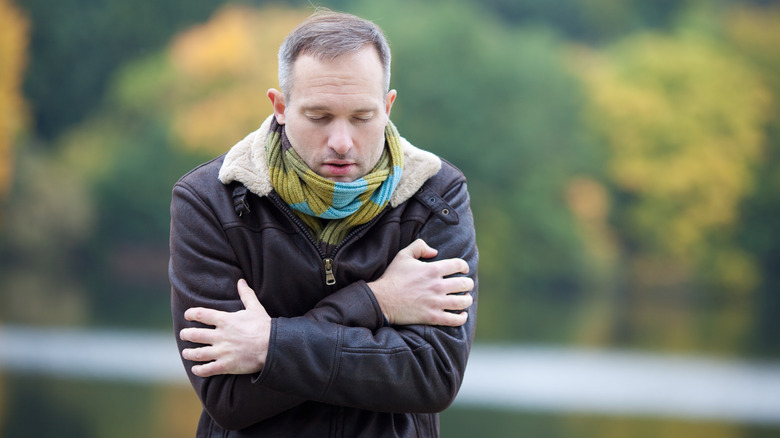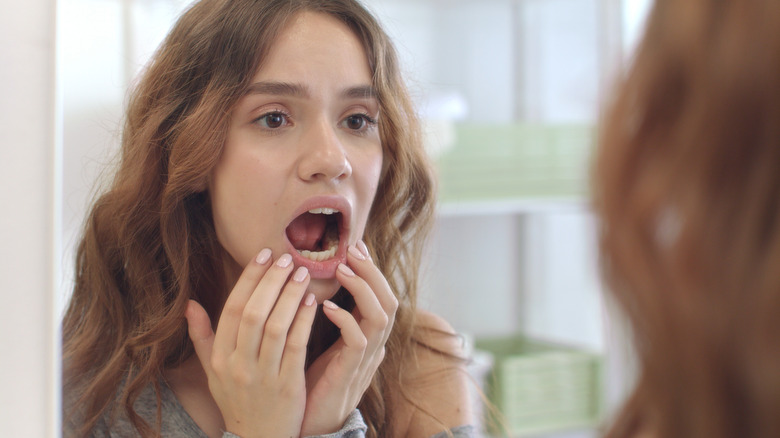What It Really Means When Your Teeth Chatter
If you've ever been out in frigid temperatures for a period of time without proper winter gear, odds are you've experienced some teeth chattering. But what actually causes your teeth to chatter — other than chilly weather?
The most commonly reason for teeth to chatter is cold, which can causes your body to shiver. Shivering helps our bodies get back to their baseline body temperatures, and teeth chattering is an automatic response we use to warm our bodies up (via Green Tree Dental).
There are some other causes for your teeth to chatter. Your body may be trying to fight off an infection, as your internal body temperature is warmer but the room feels colder (via Colgate). Bruxism — the condition where you grind your teeth — is another, and can cause headaches, jaw pain, and involuntary chattering while sleeping. This condition can flare up if you are feeling stressed or anxious, according to Healthline.
When chattering teeth can become more serious
Chattering teeth could also be a sign of something more serious. Oromandibular dystonia occurs when you feel forceful contractions in your jaw or face muscles. This condition could be a symptom of a disease like Parkinson's, Huntington's, or Wilson's, or as a result from a traumatic brain injury or stroke (via Colgate).
Additional factors that may lead to teeth chattering deal with your specific health. Antidepressants or antipsychotic medications can have bruxism and teeth chattering as a side effect (via Healthline). You may also be experiencing withdrawal symptoms like tremors from cutting out alcohol or drugs.
So is teeth chattering treatable? The answer is yes, but it depends on the cause. If you are simply cold, warm yourself up by adding layers or with heat to stop the chatter. It is best to see a medical professional if you are experiencing this when you are not cold, so you can determine any underlying causes to why your teeth are chattering.


